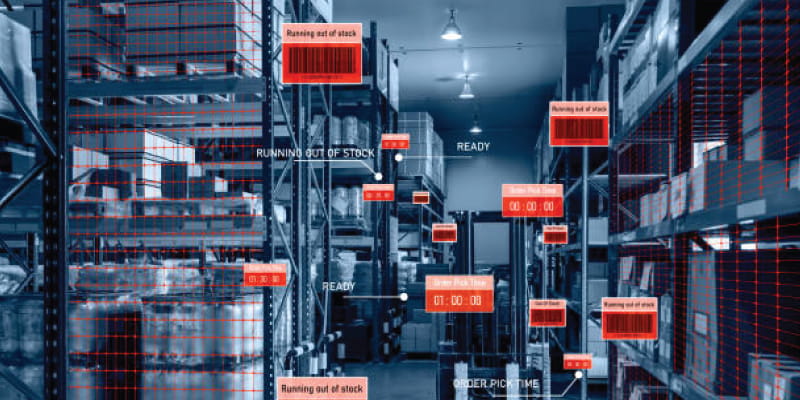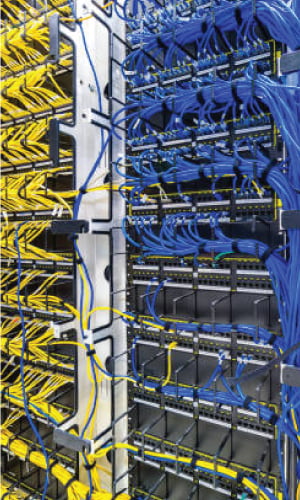Table of Contents
Introduction
Choosing the proper network hardware ensures seamless connectivity, data transfer, and overall performance. This guide will dive into the network hardware world and explore the available types, such as routers, switches, and hubs. We’ll also go over the important aspects to take into account, such as compatibility, scalability, and security features, while choosing network hardware. Additionally, we’ll explore the benefits of investing in high-quality network hardware, such as improved performance, reliability, and future-proofing. Whether you’re weighing the options between wired and wireless network hardware or looking to upgrade your existing infrastructure, we’ve got you covered. Plus, we’ll share best practices for maintaining network hardware and common mistakes to avoid when purchasing. By the end of this guide, you’ll have the knowledge and confidence to choose the correct network hardware that aligns with your business needs and sets the stage for growth and innovation.
Understanding the Different Types of Network Hardware
These nifty devices are like traffic cops for your network, directing data to its proper destination. With built-in security features and advanced capabilities, routers are essential for managing your business’s internet connection and keeping hackers at bay. Next, we have switches. Think of switches as the connective tissue of your network – they facilitate communication between different devices by creating a direct path for data to travel. Whether sending emails or accessing shared files, switches are crucial in keeping your business operations running smoothly.
We have hubs. While not as common today due to their limited functionality, hubs simply broadcast data to all connected devices without filtering. They’re like old-fashioned megaphones in a crowded room – helpful in certain situations but generally less efficient than their modern counterparts.
Factors to Consider When Choosing Network Hardware
When selecting network hardware for your business, scalability should be at the top. You want equipment that can grow with your company and handle increased demand without requiring a complete overhaul. Look for hardware that offers options for expansion and future upgrades so you can quickly adapt to changes in your organization’s needs. Another important consideration is compatibility. The network hardware you choose must work seamlessly with your existing infrastructure and software. Incompatible equipment can lead to performance issues, downtime, and added expense as you try to make everything work together. Ensure that any new hardware integrates smoothly with your current setup before purchasing.
Of course, security features are paramount when selecting network hardware. As cyber threats evolve, you must invest in equipment with robust built-in security measures. This includes firewalls, intrusion detection systems, encryption capabilities, and more. When evaluating different hardware options, be aware of the importance of safeguarding your network against potential breaches and attacks.
Benefits of Investing in High-Quality Network Hardware
Investing in high-quality network hardware can improve performance, giving your business a competitive edge. You may make sure your staff members have the resources they need to be effective and productive with quicker data transfer rates and more dependable connections.
Reliability is another key benefit of investing in top-notch network hardware. Selecting equipment with a track record of reliability helps cut down on downtime and lower the chance of expensive outages. This peace of mind lets you focus on growing your business without worrying about constant technical issues.
Finally, future-proofing your network infrastructure is essential for long-term success. High-quality network hardware is designed to accommodate technological advancements, ensuring that your investment will continue to meet the demands of tomorrow’s digital landscape.
Comparing Wired vs. Wireless Network Hardware
When selecting the proper network hardware for your business, one of the critical decisions is whether to go with wired or wireless technology. Wired networks usually offer faster speed and greater bandwidth compared to wireless networks. If your business relies heavily on data transfer and high-speed internet access, a wired network may be your best option.
On the other hand, wireless networks provide more flexibility and mobility for users within the office environment. Employees can move around freely without being tied down by cables, which could lead to increased productivity and collaboration among team members. However, it’s important to note that security may be a concern with wireless networks due to potential signal vulnerabilities that hackers could exploit if not adequately secured.
Wired networks tend to require more upfront investment in cabling and infrastructure, whereas wireless networks typically have lower initial setup costs. However, ongoing maintenance and upgrades might incur additional expenses for both types of network hardware.
The Importance of Network Hardware in IT Infrastructure
In today’s fast-paced business environment, efficient data transfer is crucial for staying competitive. Network hardware plays a vital role in ensuring data can move seamlessly between devices, allowing employees to access the information needed to perform their jobs effectively. Businesses can improve productivity and minimize downtime by selecting the proper network hardware.
Not only does network hardware facilitate efficient data transfer, but it also enables resource sharing among different devices. Staff members don’t have to deal with poor transfer rates or compatibility problems when working together on projects or sharing important papers. With the proper network hardware, businesses can streamline their operations and enhance teamwork within the organization.
Furthermore, centralized management of network hardware allows the IT department to monitor and control various aspects of the network infrastructure from one location. This makes identifying and addressing any potential issues easier before they disrupt business operations. Investing in reliable network equipment is essential for maintaining a secure and well-functioning IT infrastructure.
Best Practices for Maintaining Network Hardware
Regular updates are essential for keeping network hardware operating at its best. You can ensure your hardware remains secure and efficient by consistently applying software updates and firmware patches. This proactive approach reduces the risk of underperformance is improved and vulnerability risk is decreased with this proactive strategy.
Monitoring the performance of your network hardware is crucial for identifying any potential issues before they escalate into more significant problems. Regularly tracking key metrics such as bandwidth usage, latency, and error rates allows you to spot trends or anomalies that may indicate underlying issues. By maintaining a watchful eye on your network hardware’s performance, you can address any concerns promptly and prevent downtime.
Proactive troubleshooting involves anticipating and addressing potential problems before they impact operations. This includes implementing regular maintenance checks, conducting thorough diagnostics, and having contingency plans in place. Adopting this approach can minimize the risk of unexpected outages or disruptions to your business operations.
Common Mistakes to Avoid When Purchasing Network Hardware
When selecting network hardware for your business, one of the most common mistakes is paying attention to future needs. It’s important to consider how your business may grow and change in the coming years and select hardware that can accommodate those changes. This will save you from updating and replacing equipment as your business expands constantly.
Another mistake is focusing solely on price when deciding on network hardware. While cost is undoubtedly significant, it shouldn’t be the only consideration. Cheaper equipment may have a different level of performance or longevity than slightly more expensive options, ultimately costing you more in the long run. Achieving a balance between cost and quality is essential.
Lastly, many businesses need to consider scalability when purchasing network hardware. As your business grows, so will your need for more extensive and powerful networking equipment. It is essential to consider this to overhaul your network infrastructure sooner than necessary. Always keep scalability in mind when choosing hardware for networks.
How to Upgrade Your Existing Network Hardware
Assessing your current needs is the first step in upgrading your network hardware. Take a closer look at your business’s requirements and consider whether your existing hardware meets those needs. Are you experiencing slowdowns or bottlenecks? Are there new technologies that could improve efficiency? Knowing your existing condition can help you make well-informed judgments regarding the upgrades that are required.
Researching new technologies is an exciting part of upgrading network hardware. Keep up with the most recent developments in networking equipment and decide which ones best suit your company’s objectives. Explore faster switches, more efficient routers, or advanced security features. As technology continues to evolve, innovations can constantly benefit your business’s network infrastructure.
Implementing a smooth transition is essential when upgrading network hardware. Plan out the migration process carefully to minimize downtime and disruptions for your business operations. Try collaborating with experts who can assist with the installation, configuration, and testing of the new gear. By taking a strategic approach to implementation, you can ensure a seamless transition to upgraded network equipment.
Conclusion
Network hardware plays a crucial role in driving business growth and innovation. With the right network equipment, businesses can support digital transformation initiatives, enabling them to adapt to changing customer preferences and market trends. The seamless integration of modern networking hardware allows operational efficiency and effectiveness improvement, setting the stage for more incredible innovation and success.
In today’s dynamic work environment, network hardware facilitates remote work capabilities. As businesses increasingly embrace flexible work arrangements, reliable networking hardware enables employees to connect securely from anywhere. This flexibility not only enhances employee satisfaction but also opens new pathways for talent acquisition by broadening the geographical reach of potential recruits.
Moreover, network hardware empowers team collaboration within an organization and with external partners or clients. By providing reliable and high-speed connectivity solutions, businesses can foster a culture of teamwork and creativity while streamlining communication processes. Collaboration tools backed by robust network infrastructure enable real-time sharing of data and ideas to fuel continuous innovation.
FAQs
What is network hardware?
Network hardware refers to the physical devices and equipment used to build and maintain a computer network. This includes routers, switches, modems, network cables, and wireless access points.
Why is selecting the proper network hardware necessary for businesses?
Selecting the proper network hardware is vital for businesses because it directly impacts their network infrastructure’s performance, reliability, and security. Choosing the wrong hardware can result in slow internet speeds, frequent network outages, and potential cyber-attack vulnerabilities.
What factors should be considered when selecting network hardware for a business?
When selecting network hardware for a business, several factors should be considered. These include the size and scale of the network, the specific needs and requirements, the budget allocated for network infrastructure, and the business’s future scalability and growth potential.
What are some common types of network hardware used in businesses?
Common network hardware types used in businesses include routers, switches, firewalls, wireless access points, network cables (such as Ethernet cables), and network interface cards (NICs). These devices are essential for establishing and maintaining a reliable and secure network infrastructure.
How can businesses ensure they select the proper network hardware?
To ensure they select the proper network hardware, businesses should thoroughly assess their network needs and requirements. They should consult with IT professionals or network specialists to determine the most suitable hardware options based on network size, performance requirements, security needs, and budget constraints. Businesses can also consider reading reviews, seeking recommendations, and comparing different hardware options before making a final decision.














